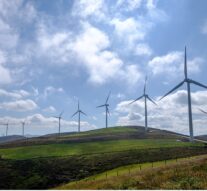
The Spanish presidency and the energy challenge in the EU
Energy 16 July 2023Estimated time of reading: ~ 2 minutes
Energy transition will be a key feature of Spain’s agenda for the Presidency of the EU Council, which officially began on the first of July. The Spanish government will push to strengthen the sense of unity among the EU member states so as to advance the strategy of climate neutrality set by the Commission. The Sanchez cabinet has already presented a new draft climate plan for Spain, which includes higher 2030 emissions reduction targets and increased expansion of renewables. On the European level, the Spanish government aims to assume a leading role in the transcontinental renewable energy system, becoming a green hydrogen hub.
Among the priorities set by the Sanchez cabinet for the EU presidency, there’s a clear will to promote a reform of the European electricity market, aimed at accelerating the use of renewable energies, while reducing electricity prices and improving the stability of the whole system. Madrid will also pursue an acceleration of the legislative files related to Fit for 55, such as the gas and hydrogen package and the energy efficiency regulations. In this perspective, the Spanish presidency already got a good result with the European Parliament’s approval of the Nature Restoration Law on July 12.
All these plans and the targets for the semester of the EU presidency could be jeopardised by the snap elections in Spain, set for the 23rd of July, as the current centre-left government faces the rise in the polls of the Popular Party and the far-right Vox. A change in the ruling coalition would probably lead to a different approach in the EU, as the new government could decide to put more emphasis on certain issues, even though it would hardly change the main topics set by the Sanchez cabinet. If there is no clear majority after the next elections, the situation could have a direct impact on the EU presidency, as an acting government may be distracted from European affairs and more focused on internal politics.
On the other side, Spain remains a global power in renewable energy, ranking eighth in the world in terms of installed capacity and second in the EU. Whatever government will emerge after the July 23 snap election, it would be a huge mistake to squander the country’s potential in the field of renewables.
Written by: Francesco Marino


